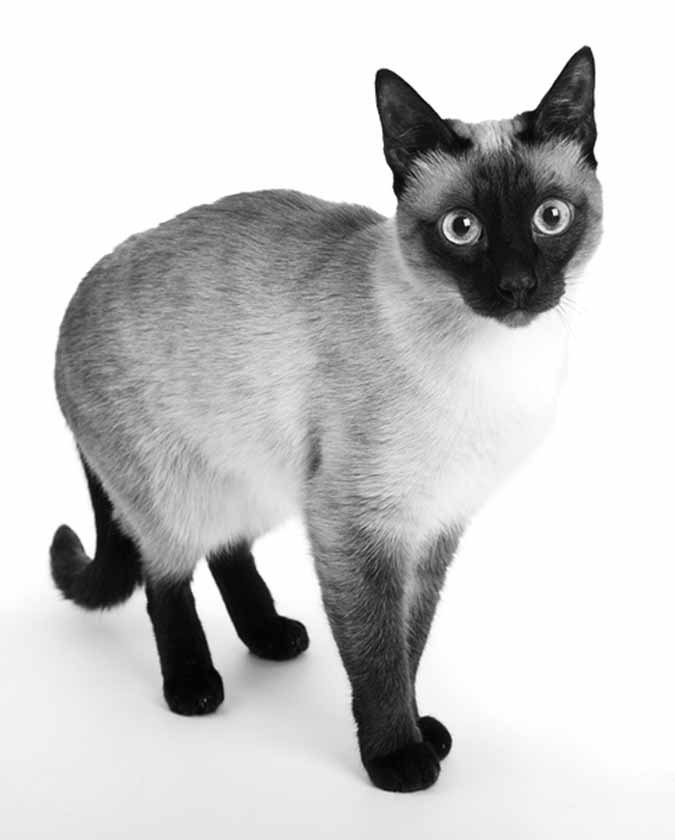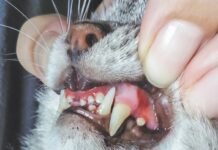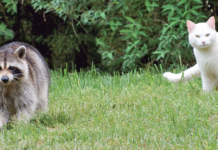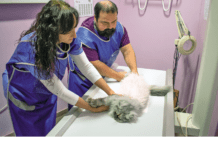When your cat seeks affection or attention, he may nudge your forehead or open palm, and you may detect his purring or a gentle mew. “The behavior — called head bunting — is a normal social behavior,” says Leni Kaplan, MS, DVM, a lecturer in the Community Practice Service at Cornell University College of Veterinary Medicine.
“Cats will deposit their scent as a means of bonding to signify comfort and familiarity and perhaps to seek attention from their human companion.”
But if your cat firmly presses his head against a wall or sofa for extended periods for no apparent reason, don’t be quick to dismiss it as attention seeking. He could be facing a significant health problem. “Head pressing is an abnormal behavior,” Dr. Kaplan says. “It should be considered an emergency, and veterinary attention should be sought immediately.”
Unaware of Pain
You should also report any other changes in your cat’s behavior or health. Along with head pressing, he may pace, circle, stumble or vocalize. He may become disoriented and/or develop impaired vision and possibly seizure activity. He often may be in altered mental states and unaware of pain or his circumstances.
“Head pressing is usually one of several clinical signs that indicate an underlying medical problem,” says Dr. Kaplan. “These problems can be primarily neurologic in origin but can also be related to serious medical conditions, including a toxin, metabolic derangement or vascular accident.”
While head pressing itself is not a source of pain, Dr. Kaplan says it is a red flag, linked to a long list of conditions, including but not limited to:
– Type 2 diabetes, in which cats produce insulin but, due to insulin resistance and/or pancreatic dysfunction, they need insulin supplemented. This differs from Type 1 diabetes, the inability to produce insulin to maintain normal blood glucose levels.
© kovalvs | Bigstock

– Sudden head trauma due to a car accident or being struck on the head by a blunt object
– Vascular incidents, such as a blood clot or cerebral bleed
– Cancerous tumors on the brain or elsewhere in the body
– Sinus pain or pressure
– Liver diseases, such as a liver shunt, or bypass, and chronic hepatitis — see sidebar
– Hypertension, or high blood pressure, which if untreated can affect eyesight, kidney function and cardiac function
– Prosencephalon disease, in which the forebrain and thalamus — the part of the brain responsible for transmitting sensory impulses — are affected
– Exposure to toxins, such as lead
– Fungal and other infectious diseases that affect the central nervous system
– Viruses, including rabies
– Metabolic disorder, including having excessive or inadequate sodium in the blood plasma
In addition to a complete physical exam, your cat’s veterinarian may take blood and urine samples to detect the presence of toxins and blood pressure readings. He or she may also examine your cat’s retinas for signs of infection and inflammatory disease.
A referral to a specialty hospital for computed tomography or magnetic resonance imaging to check for brain damage might also be recommended. Treatment may include surgery to remove a tumor or medications to treat infections.
The take-home message is to recognize normal behavior in your cat and report changes to his veterinarian when treatment may be the most effective.
Some senior and geriatric cats who suffer from cognitive dysfunction syndrome may become “stuck” in corners and appear to be lowering or pressing their head as they try to navigate their way out. Their disorientation is unrelated to head pressing but does warrant consulting the veterinarian about management of reduced mental capacity.



